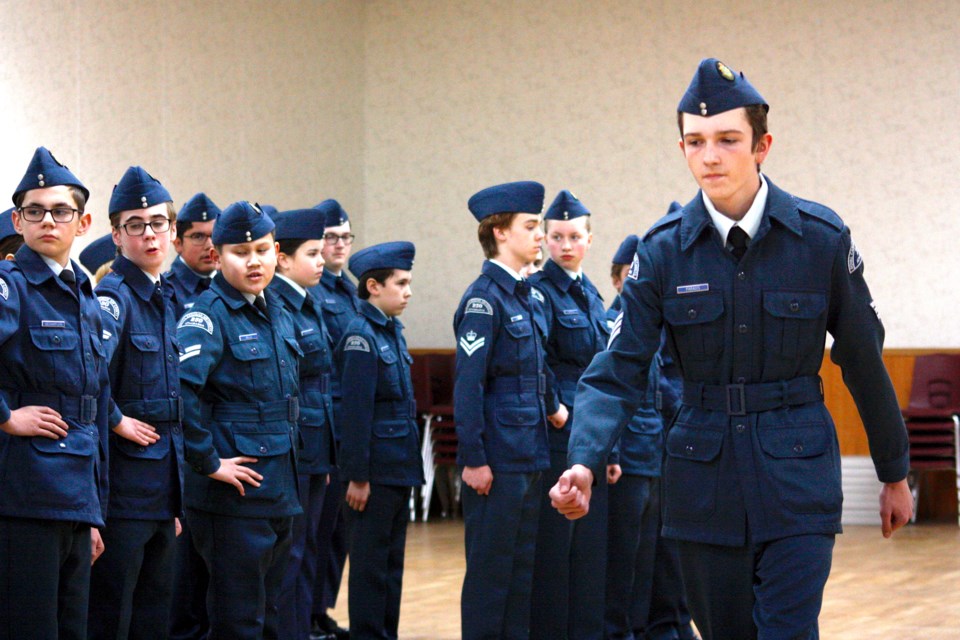ATHABASCA – If he could see them now Flight Lt. Harry Bayliss would see a group of dedicated young people in a modern world he could probably never have imagined, but 80 years after its founding, 230 Royal Canadian Air Cadets Squadron is still carrying out its aim of developing future community leaders.
The local squadron gathered at their home base at the Colinton Community Centre Dec. 7, as they do most every other Wednesday evening, but this time they were there to celebrate the milestone 80th anniversary with a Commanding Officer Parade Night where awards were also handed out to several senior members for their long service.
Commanding Officer Capt. Dawn Bucholtz said it’s been a challenging two years with the pandemic, but the group actually came back with more members than they had before, which is fitting in their 80th year as they are still fulfilling the goals of shaping young people into future leaders. The history of the air cadets in Athabasca is long and storied.
“So, 230 is one of the earlier ones and of course, we were all started off during World War Two to help with the war and train aviators in our case. It's quite a feat, especially with the events of the last few years and stuff like that,” she said.
Since the Second World War, Canada has supported the formation of the cadet clubs throughout the country, and there are now more than 400 clubs with more than 26,000 members, whether they are air, army or sea cadets. The mission is to foster citizenship and leadership skills in young people; promote physical fitness; and stimulate an interest in the three branches of the Canadian Forces.
With that development comes an array of training and learning opportunities that range from aviation, to shooting, to survival skills and many more. Cadets travel to locales across Canada to attend
Bayliss is a well-known figure in Athabasca history, coming to the community soon after finishing his service as an infantryman, then as a member of the Royal Air Corps during the First World War. He also became the community’s first postmaster after settling in Athabasca in 1920.
Buchholz, who has been involved with cadets since her daughter joined in 2000 and has been the local squadron’s commanding officer since 2015. She said she initially questioned her daughter’s decision, but soon learned what cadets is all about.
“After I found out what a great program it is, and what it does for the youth, I just was I was hooked,” she said.
“What I have noticed with a cadet program is those that go through, even three to four years, gain a sense of what I call true self-confidence through the leadership and citizenship because they've achieved things that they do themselves, and they become so confident in what they can do themselves that they're able to stay out of the troubled areas by being confident enough to say no,” she elaborated. “Self-confidence in the in the cadet program is huge for teenagers.”



